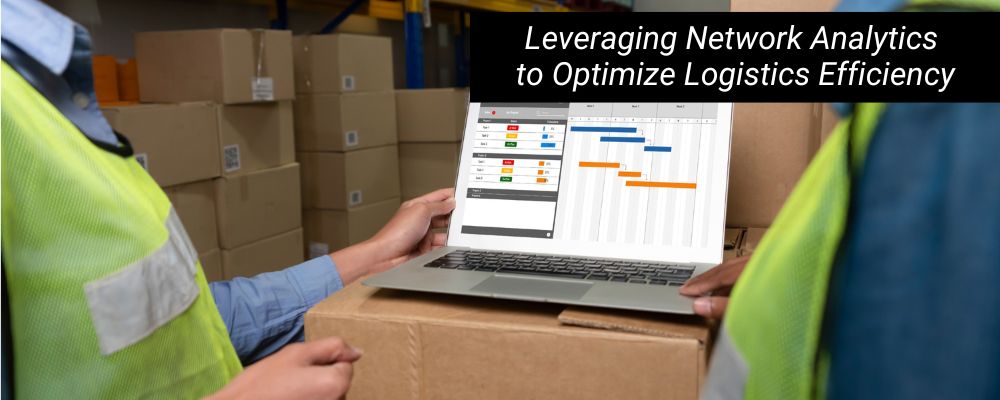
Introduction:
Logistics companies play a crucial role in ensuring the smooth flow of goods and materials from one point to another. However, managing a logistics network comes with its challenges, such as optimizing routes, minimizing costs, and maximizing efficiency. In this article, we will delve into the concept of network analytics and how it can revolutionize the way logistics companies operate.
Understanding Complexity in Logistics Networks:
One of the primary obstacles faced by logistics companies is dealing with complexity within their networks. The video captions highlight how analyzing various factors like utilization rates and comparative industry standards can help address this issue effectively.
Optimizing Stop Locations for Maximum Efficiency:
A critical aspect of enhancing efficiency is determining optimal stop locations throughout the supply chain process. By utilizing sophisticated network analytics tools, logistics companies can identify strategic stops that minimize travel distance while maximizing capacity utilization. This approach leads to reduced time spent on the road and ultimately lowers operational costs.
Combining Shipments for Cost-Effective Solutions:
Another strategy mentioned in the video captions involves combining shipments from different trucks. By leveraging advanced algorithms and optimization techniques, logistics companies can consolidate deliveries efficiently. This not only results in cost savings but also reduces overall carbon footprint through fewer trips required.
Utilizing Machine Learning for Performance Enhancement:
Machine learning algorithms have proved invaluable when it comes to improving performance across various domains, including logistic networks. With access to vast amounts of data generated daily by transportation systems and customer preferences, machine learning models can predict demand patterns accurately and optimize route planning accordingly.

Considering Specific Constraints for Tailored Solutions:
Every logistics company faces unique constraints based on their operations’ nature or geographical location they serve. These constraints might include specific regulations or limitations imposed by local authorities along certain routes or during particular times of day/year.
By incorporating these constraints into analytical models using domain-specific expertise provided by professionals like Fekters Bendriss (as mentioned in the captions), logistics companies can tailor their solutions to meet the specific challenges they face.
The Importance of Performance Evaluation:
To ensure continuous improvement, effective performance evaluation is crucial. Through network analytics, logistic companies can monitor key performance indicators (KPIs) such as capacity utilization, on-time delivery rates, and fuel consumption.
By tracking these metrics over time and comparing them against industry benchmarks, companies gain valuable insights into areas that need improvement. This allows for informed decision-making regarding resource allocation and operational adjustments.
By employing smarter ways of filling orders using advanced algorithms and optimization techniques, this fictional company was able to achieve impressive results:
1. Increased Capacity Utilization: By analyzing the data collected from their trucks’ sensors in real-time and optimizing routes based on demand patterns.
2. Reduced Time Spent on the Road: Leveraging machine learning models helped identify optimal stop locations along the route while minimizing travel distance. As a result, drivers spent less time on the road without compromising delivery timelines.
3. Cost Savings: By combining shipments intelligently to maximize truck load capacities.
So, Network Analytics has emerged as a game-changer in optimizing logistics networks worldwide by addressing complexity through sophisticated algorithms and leveraging machine learning capabilities. Implementing network analytics not only improves efficiency but also reduces costs and enhances customer satisfaction levels. With advancements in technology continuing at an exponential rate, it’s imperative for logistics companies to embrace network analytics fully if they want to stay competitive in today’s rapidly evolving landscape.








